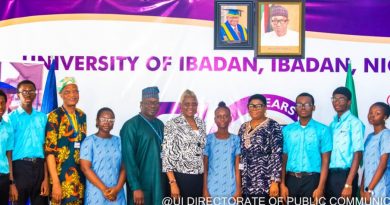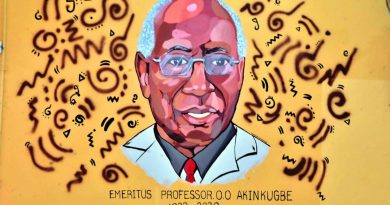Positive Implications of Governor Umar Bago’s Scholarship Initiative in Niger State towards Achieving SDG 4
By Emmanuel Daudu
The commitment towards inclusive and quality education for all, as encapsulated in Sustainable Development Goal 4 (SDG 4), is fundamental to the progression of any society. In light of this, the recent development within Niger State, where Governor Umar Bago has awarded scholarships to 1,530 final year secondary school students, marks a pivotal stride in bolstering the educational landscape of the state.
Governor Umar Bago’s educational policy demonstrates an acknowledgement of the dire need to boost education within the state. By directly alleviating financial burdens from the shoulders of students’ families, the scholarship initiative permits 1,530 individuals to focus more intently on their academic pursuits without the fear of pecuniary obstacles.
The provision of scholarships to students in Niger State is a robust countermeasure against the financial barriers that often deter or entirely halt the educational endeavors of young aspirants. With nearly 10.5 million children out of school in Nigeria, according to UNICEF “https://www.unicef.org/nigeria/education”, any alleviation of scholastic costs is a welcome development. By extending educational opportunities through fiscal support, the state encourages the continuity of academic input and reduces dropout rates.
Governor Umar Bago’s scholarship scheme is inclusive of women, promoting gender equality – a secondary but equally important component of SDG 4. Research has illustrated that supporting girls’ education can lead to a cascade of benefits, including delayed marriage, reduced fertility rates, and increased socio-economic advancement. A scholarship allocation to female students signifies a stride towards generic empowerment and advocacy for equal educational access.
Enhancement of Educational Quality:
“Quality education” implies a certain standard of learning is being upheld and improved over time. Scholarships provide resources that can facilitate access to better educational materials, technology, and extracurricular programs. This supports the UNESCO’s framing of quality education, which stresses the importance of proficient teachers, adequate resources, and safe learning environments. As more students gain uninterrupted access to these fundamental requirements through financial aid, educational quality within Niger State is poised for advancement.
The scholarships are
not only for the academically meritorious but also for the economically disadvantaged and those from marginalized communities. Analytical researches highlights that educational grants play a significant role in levelling the playing field and enabling those from less privileged backgrounds to attain academic success. Hence, this policy is an exemplar of the social inclusivity ethos propounded by the SDGs.
Governor Bago’s initiative will have a substantial long-term economic impact on the state. some people argues that education is a cornerstone of economic development. As more individuals complete secondary education, the state increases its cohort of prospective professionals, potentially attracting investment and fostering innovation. In the words of economic theorists, human capital development is the sine qua non for economic expansion – a principle that reverberates through the corridors of this scholarship program.
Governor Umar Bago’s decision to award scholarships to final year secondary school students in Niger State presents not merely a commendable gesture of political will, but an essential move towards actualizing the holistic vision introduced by SDG 4. The initiative reflects a multi-dimensional impact: vanquishing economic obstructions, elevating educational quality, ensuring gender parity in educational access, assisting marginalized groups, and fuelling long-term economic fortitude. With this scholarship scheme, Governor Bago has set a precedent for other states to emulate, paving the way for a nationally orchestrated crusade towards the realization of quality education for all. Should this momentum be sustained and the initiative broadened, one may envisage the emergence of a Niger State where every child, irrespective of their background, has the power to wield education as the key to unlocking a future brimming with promise and potential.
Written by Emmanuel Huleji Daudu,
+234 9036683775
daudupress@gmail.com
Sponsored by World Sustainable Development Goals Organization, worldsdgs.org, info@worldsdgs.org




